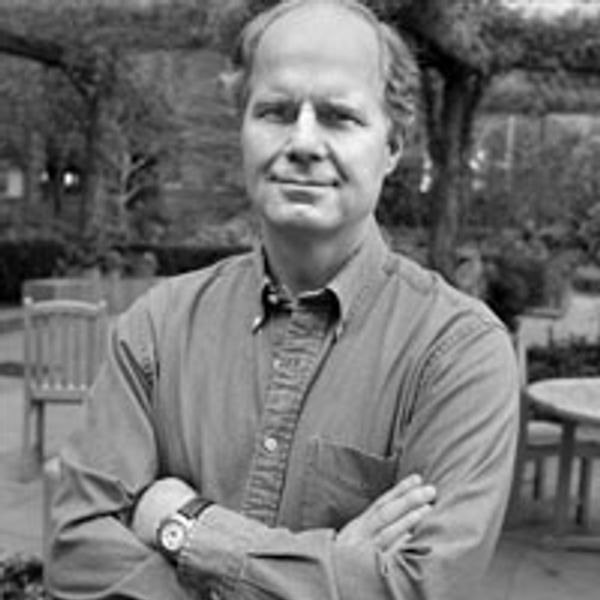Lia Purpura, Skate’s Egg Case (detail), featured in AGNI 102
perfect
—“Doctor, how much should I weigh?”
—“How much do you weigh?”
—“182 and a half pounds.”
—“And how tall are you?”
—“Five foot ten.”
—“Well, you should weigh 170.”
—“I thought so. I’m more than twelve pounds overweight. Can you give me a diet? Or a pill?”
Our friend has failed to achieve his ideal body weight. He will seek the ideal, however, and asks the doctor’s help. The doctor participates in this notion of the ideal and will offer counseling about diet, exercise, and the like.
The notion of an ideal in humankind has a long history, glorious in part but also troubled. One thinks first of classic Greek sculpture, perfect athletic bodies sculpted in marble, men and women and heroes and gods rendered in the same forms. Critical inspection detects the anatomic distortions necessary to achieve this aesthetic ideal, impossible muscles and proportions. Roman statuary joined to idealized (if bulkier) bodies the heads of recognizable individuals, portraits. For the Latin Middle Ages, the body was an encumbrance or impediment rather than an ideal form. At the extreme, the desert saints performed spectacular feats of ascetic self-mortification; but even for others, perfection was of the soul and had little to do with the flesh. It was the humanists of the fifteenth and sixteenth centuries who created a new vision of human perfectibility, or ascent towards perfection, on this earth: Piero della Francesca, Leonardo, Pico della Mirandola, Marsilio Ficino (a physician), Erasmus.
And from these sprang the figures of the Protestant Reformation. For Martin Luther and John Calvin, living in perfection was the sign of having been predestined for salvation. Imperfection raised the possibility of utter, eternal damnation. It is humanism bent, sometimes tirading against the body, sometimes luxuriating in vivid contempt. For Calvin, the body is “carrion, dirt, and corruption.”*
The descendants of Luther and Calvin were the Puritans, the founders of our own country.
~
If I carry the same extra fifteen pounds as my compatriots, I am overweight, “obese,” reprehensible. If at seventy years my bone density is average for my age, I am diagnosed with osteoporosis. If my cholesterol is the average for middle-aged Americans, about 230 mg/dL, I am above the “goal” of 200 and have a lipid disorder. If my blood pressure is 140/80—quite average, actually—the National Heart, Lung and Blood Institute says I have hypertension. If I drink two glasses of wine daily, according to the National Institute on Alcohol Abuse and Alcoholism, I have an alcohol problem.
For many of these diagnoses, by the way, there is a pill. Sometimes it is the pill that creates the diagnosis in the first place. Hypertension, high cholesterol, osteoporosis, sexual dysfunction (how defined?), male baldness, minor depression—these were widely popularized as diagnoses only when a medication appeared to treat them, and with it an industry.
I should exercise for at least twenty minutes three times a week; I should weigh 172 pounds; I should take calcium; I should eat fruits and vegetables; I should floss my teeth. I should abstain: from salt, from meat, from cookies, from alcohol, certainly from drugs of any sort, from sun-bathing. I should be pure.
These are puritan themes. Now, it may well be that these measures are good for you, meaning that they lead to some desirable health outcome, or (more usually) reduce the likelihood of some undesirable health outcome. But they are puritan in that they partake of ideas of human perfectibility that were born on the outskirts of the Renaissance and nurtured on the capitalizing shores of the North Sea. Blended with the mechanical thinking of the Industrial Age, they bring us to this moment: we are elaborate machines, we improve ourselves, we improve ourselves nigh unto perfection, we are perfectible, we despise our own imperfections, we achieve salvation to the extent that we approximate some ideal that is given to us from without. This ideal is both constructive (lift weights!) and destructive (abnegate!) It is for and against the body. And the doctors—are they both custodians of the body, and its inquisitors?
* Sermon 338 on Deuteronomy

Charles Bardes, M.D.
Charles Bardes is a physician who practices and teaches medicine in New York. His book-length prose poem, Diary of Our Fatal Illness (University of Chicago Press, Phoenix Poets, 2017), narrates the illness and death of an aged man. Other poems, essays, and ruminations have appeared in AGNI, Raritan, Ploughshares, The New England Journal of Medicine, and elsewhere. Pale Faces: The Masks of Anemia (Bellevue Literary Press, 2008) is an extended lyric essay that probes the mythological and cultural aspects of a common disease construct. In 2018 he received the Blackwell Prize in Writing, which “honors a writer who exhibits exceptional talent on the printed page, as well as meaningful social commitments on the public stage.” More info at charlesbardes.com. (updated 3/2020)
